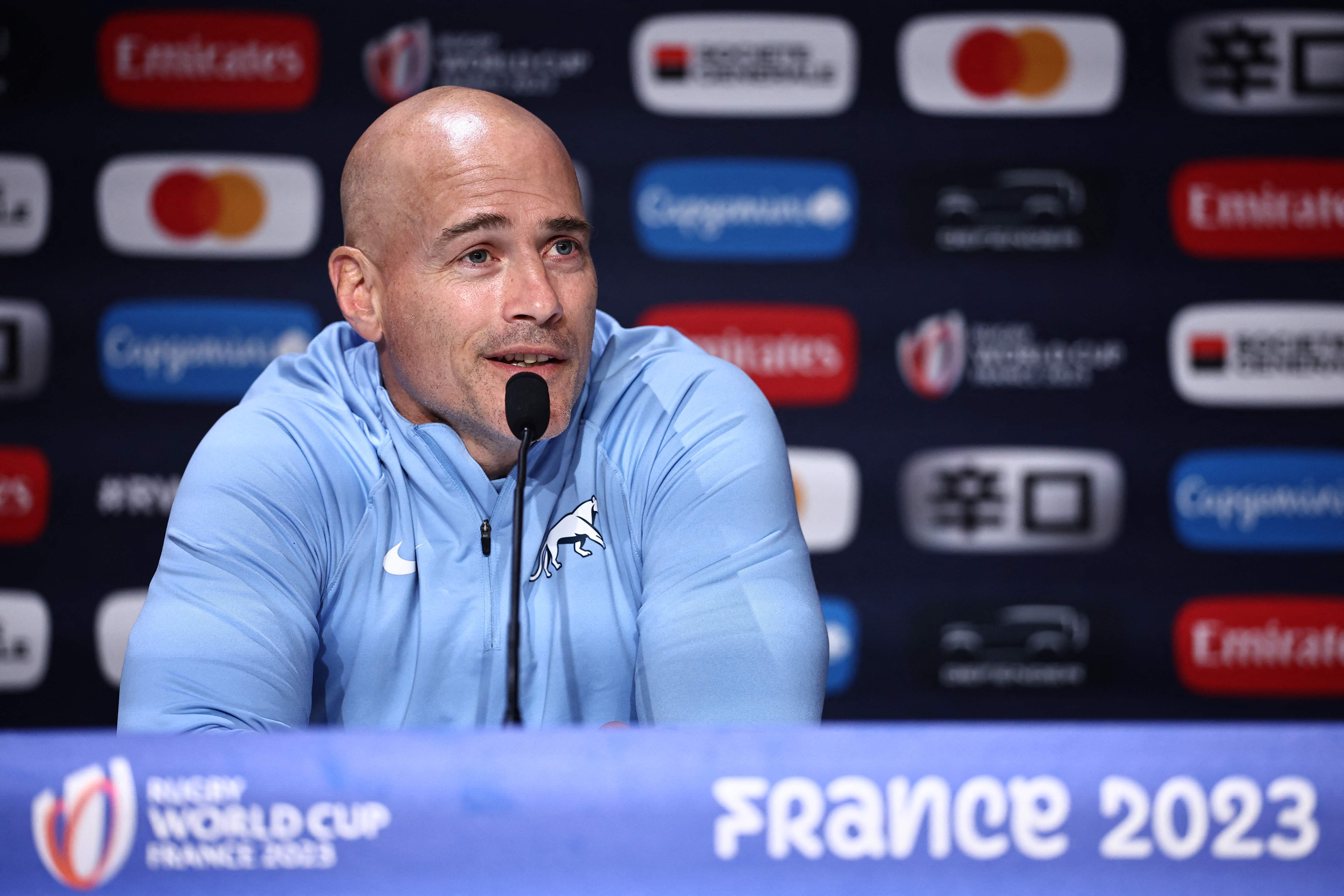The remarkable rise of Argentina, rugby’s great outlier on the brink of history
Against all odds, the Pumas have emerged as Rugby Championship challengers, writes Harry Latham-Coyle, but professional rugby must cherish them amid an uncertain future for the sport


The story goes that the sobriquet by which the Argentine national rugby team has become commonly known came about as a case of mistaken identity. The tale told is of a South African journalist watching a touring side in the 1960s and seeking a snappy name to assist him at second mention. A whiskered beast on the badge of their blue and white kit provided inspiration, but the reporter in question was no feline specialist, clued up on his South American cats enough only to know that it must be either a jaguar or a puma stitched onto the Argentinians’ chest.
His punt of the Pumas was wrong but the nickname stuck. Last year, the Argentina union finally gave in, correcting their crest to the creature by which their national rugby side had long been known.
Perhaps the yarn is apocryphal but it is strangely befitting of a nation that has always occupied a curious place in rugby’s ecosystem. There is deep history of the sport in the country – the British & Irish Lions toured in 1910 – but the Pumas have always felt unloved, to some extent, by rugby’s administrators. In a territory in which the sport has no other true stronghold, they have been an oddity at a top table they belatedly joined with their elevation into the Rugby Championship in 2012.
Argentina’s men have competed at every World Cup and reached semi-finals at three of the last five tournaments, but success in the Southern Hemisphere’s premier international competition has been elusive. In their first decade after joining the Tri-Nations heavyweights, Argentina avoided the wooden spoon only twice.

But results in recent years show that something special may be stirring. In November of 2020, the All Blacks were conquered for the first time; two years later, a first win was secured on New Zealand soil and England were beaten at Twickenham. This year’s Rugby Championship has brought another significant step forward: victory over the Springboks in a raucous Santiago del Estero meant that the Pumas had conquered each of the Southern Hemisphere’s big beasts in a single campaign for the first time.
They encounter South Africa in Mbombela this weekend with faint hopes of a first competition crown. “We know how important this match is, what is at stake, but we want to continue the process of trying to be better," said captain Julian Montoya in the build-up with his side needing to beat the Springboks and deny their opponent a single point to snatch the title.
"We want to impose our game, look for the win and we know that there is a chance to win the tournament. But we have to be focused first on improving our game and only that can lead us to the result.
"We are not going to hide from this opportunity. We are aware of what lies ahead, which is thanks to what we are doing. We have to improve things from the previous match, because there is a lot of room for improvement."
This success is worth contextualising. Since the disbanding of the Jaguares franchise, which reached the final of their last Super Rugby season, there has been no true pathway to professionalism within Argentine rugby, no clubs or competitions truly designed to nourish or nurture budding talent. Head coach Felipe Contepomi’s squad for the Rugby Championship contained only a single player – prop Pedro Delgado – who plies his regular trade within the bounds of South America, the rest coming together from overseas.

The lack of professional clubs, and the nation’s general lack of a diaspora, means that Argentina rarely rely on complementing homegrown talent with naturalised citizens or dual-qualified individuals reared overseas. It is a real achievement that Contepomi’s side are able to compete so regularly with their rivals who enjoy these advantages.
The Pampas, though, proves ever fertile. In terms of quantity, there are more productive talent factories but Argentina can be relied upon each year to unearth two or three prospects. A relatively small playing pool allows these youngsters to incubate quickly within the senior set-up. Just this summer, Efrain Elias went from captaining Argentina’s U20s to a thrashing of the Junior Springboks on South African soil to featuring off the bench in the thrilling victory over the All Blacks in Wellington in little more than a month.
The squad is littered with those who have benefited from that fast-tracking, including back-row titans Marcos Kremer (who has amassed 72 caps at the age of 27) and Juan Martin Gonzalez (36 at 23). Their use of sevens as an additional proving ground has also been key to developing their outside back talent – where once famed for their “Bajada” scrum strength, it is out wide where the depth now lies.
Past and current internationals point to something cultural, too. The impact of passion and pride can be overstated given how crucial a currency it is to every national side, but Argentina certainly don’t want for patriotism. “The Pumas are my life, my passion,” veteran hooker Agustin Creevy told The Independent during last year’s World Cup. “Every decision of my life I have given for this jersey. I think the [Argentine] people know that.”
It was one of a number of interactions with the squad during the tournament in which that prevailing theme shone through. “The truth is that if I weren’t playing for Los Pumas, I don’t know if I would get up every morning to train the way I do and face life the way I do,” flanker Marcos Kremer said. “A few years ago, I dreamed of wearing it and now I feel like I can’t live without it.”
More widely, there is hope within South America that the success of the Pumas can help catalyse broader expansion of the game. Uruguay and Chile thrilled at the 2023 men’s World Cup; Brazil will compete at next year’s women’s tournament in England. Football may remain king on the continent but rugby’s participation numbers are beginning to grow. At a time where rugby is considering how to expand the game beyond its traditional borders, here is a territory seen by some as a sleeping giant.
Yet there are concerning noises about Argentina’s future elsewhere. Plans are progressing over a touring agreement between South Africa and New Zealand that would, it seems, have significant ramifications for the future of the Rugby Championship. The exact impact remains somewhat unclear but it is likely that the competition is not held every year in the future.

Australia have moved quickly behind the scenes to safeguard their vital Bledisloe Cup clashes with the All Blacks but Argentina’s future is altogether more uncertain. It seems highly, highly unlikely that they will continue to enjoy the regularity of fixtures that has been crucial to their recent rise.
“The powers are finding new ways to escape the crisis with old formulas,” a piece in Argentine newspaper La Nacion warned. “Emerging countries, such as Argentina, are once again left out.”
Any abandonment of Argentina would seem short-sighted. The Pumas’ ascension is one of strikingly few organic success stories since rugby union entered the professional age three decades ago – it would feel callous and careless to neglect them now.
Join our commenting forum
Join thought-provoking conversations, follow other Independent readers and see their replies
Comments


Bookmark popover
Removed from bookmarks